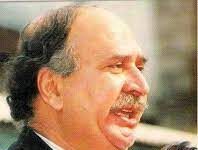By Muhammad Luqman
The first round of talks between Pakistan and International Monetary Fund (IMF) has ended without any agreement as Islamabad refused to accept demands of an increase in tax rate and electricity tariff.
“Disagreement with the IMF continues on certain issues that includes an increase in electricity prices by 20-22%,” Pakistan’s Finance Minister Asad Umar told media in the capital, Islamabad.
The Pakistani delegation led by Asad Umar also disagreed on increasing tax collection target from Rs4,300 billion to over Rs4,700 billion.
Moreover, the IMF had demanded more devaluation of Pakistani Rupee against US Dollar which Pakistan refused to do.
Pakistan will also not be providing financial details of economic cooperation with China, as demanded by the IMF.
The second round will begin when the IMF returns to Pakistan on January 15.
In a statement on the conclusion of two-week talks, Pakistan’s Finance Ministry claimed that substantive progress has been made by the Government of Pakistan and the IMF Mission towards developing a common understanding on the policy and structural reforms framework for the prospective IMF programme, including fiscal and monetary measures, corrective interventions for balance of payments sustainability, pro-poor spending, governance and development of a business-friendly environment.
“The positive engagement with the IMF will continue over the coming weeks to finalise the programme with the Fund,” the statement said.
To overcome balance of payment crisis, Pakistan’s Prime Minister ,Imran Khan has recently visited Saudi Arabia and China. Saudi Arabia has provided US $ 3 billion to Pakistan to overcome forex crisis. He is currently in Malaysia to seek cooperation to bring and end economic woes of the South Asian country.
T















